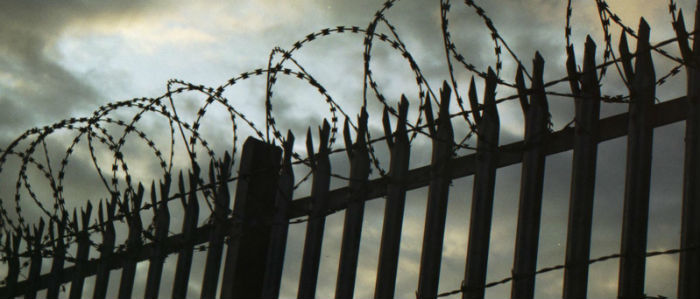Prisoners die in unexplained circumstances in Russian-controlled ‘Luhansk republic’ prisons

In August alone, five prisoners are known to have died in prisons under the control of the self-proclaimed ‘Luhansk people’s republic’ [LPR]. Two of the men are believed to have committed suicide, while a source known to the Kharkiv Human Rights Group reports that two other men found in the sewage system had marks suggesting that they had been subjected to physical violence. Two of the men who died were due to be released this year.
Ukraine’s Human Rights Ombudsperson Ludmila Denisova has asked the International Red Cross to investigate these deaths, and points out that she has received information from both prisoners and from their relatives about the appalling conditions and lack of medical care in such prisons.
It is obviously impossible to identify the sources of information, or to carry out any independent check, and even if the Red Cross is able to visit the prisons, they will likely be fobbed off. With respect to the two men whose bodies bore marks of physical force against them, the prison administration has asserted that there was no violence and that the men died while trying to escape through sewage pipes.
There is also no information about why two men saw no other option but to hang themselves, however human rights groups have also heard shocking accounts from prisoners of inhuman and unsanitary conditions, of the lack of medical care and of ill-treatment by prison staff, who clearly feel they can behave this way with impunity.
Kharkiv Human Rights Group lawyers have so far submitted applications to the European Court of Human Rights on behalf of 15 people imprisoned on occupied territory.
The prisons in question are on territory seized by Russian armed, manned and financed militants back in the Spring of 2014, and now forming the so-called ‘Luhansk and Donetsk people’s republics’. Some of the prisons in both ‘LPR’ ‘DPR’ also came under shelling, with prisoners often not moved to underground cellars for safety.
There has also been major difficulty getting militant agreement for the transfer of those prisoners who ask to be moved to Ukrainian government-controlled prisons.
Three of the five prisons who died in August had previously asked for such a transfer, which had supposedly been agreed during talks in Minsk, but which had still not eventuated. It seems that only two prisoners, held in ‘LPR’ prisons, have so far been released. The situation is better in ‘DPR’, but only by comparison, with just 188 prisoners handed over to the Ukrainian government authorities. Denisova has previously accused the Russian proxy ‘republics’ of deliberately dragging their heals on such transfers.
Many of the prisoners are also being held beyond their scheduled date of release. The unwillingness to release people is further confirmation of reports that prisoners are used as forced labour in occupied territory.
Pavlo Lisyansky, Head of the Eastern Human Rights Group and the Human Rights Ombudsperson’s Representative for the Luhansk and Donetsk oblasts, reports that in ‘LPR’ prisoners are forced to do hard physical labour and threatened with physical violence if they refuse. This can be work in the so-called ‘kopanky’ (illegal mines) or in working mines, with punitive squads used to crush those who object.
Although most of the people in prisons were convicted of crimes before the events of early 2014, there have also been many ‘arrests’ since then, often of people seized on suspicion of opposition to the Kremlin-backed militants, or for other dubious reasons. Even where people have been detained for committing real offences, there is nothing to suggest that they can hope for a fair trial, or for humane conditions of imprisonment.
See, for example, Russia-backed Luhansk militants seize pensioner for posting pro-Ukraine leaflets





